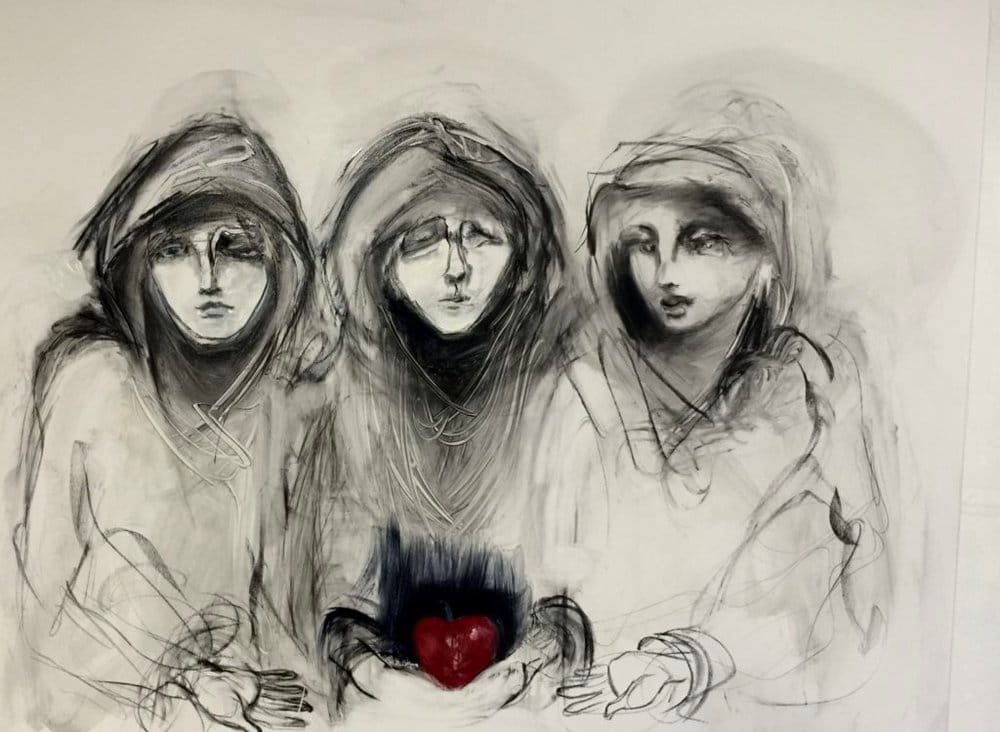WITCH HUNTS & OTHER IDLE PARTY FAVORS
“Rumour is a pipe / Blown by surmises, jealousies, [and] conjectures” Shakespeare, Henry IV Part II

Imagine yourself sitting by a table, at a dinner party in a friend’s home. Conversation flows, and you find yourself in a trustworthy companionship. As talk unfolds, a guest talks about a mutual friend and laughs. With no reason to assume misrepresentation, you take the guest’s words as truth and unknowingly absorb Rumor’s malignant tendrils. Kool-Aid drunk, with no alternative presented, Rumor breeds, ready to stalk her next prey.
While this account may seem overly poetic, the point stands that rumor and slander exist as hurtful actions within our world. Throughout my life, a common trait among my friends is that we have been bullied. Victims, we and our families, are far too familiar with this pain. According to the CDC, “Youth who report being frequently bullied are at increased risk for suicide-related behavior.” Furthermore, studies supported by the CDC show an increase of 24% in suicide rates from 1999 to 2014, a raise from 10.5 to 13.0 per 100,000 population. Whether correlation or causation, the facts are devastating. I hate knowing that my friends and I contribute to behavior that spreads fear in children’s hearts.
But the real problem is that children are not the only victims of this hatred. Bullies do not disappear when they graduate from high school. They climb the social and economic ladder with everyone else, and they feed the epidemic that has spanned generations. Rumor, gossip, and slander may be the more recognized names for “matured” bullying tactics, but the aim and the effects of the actions are the same: defamation and pain, with intent to destroy.
Some find themselves boggled at the phenomenon of such negative attributes resurfacing so regularly within our communities. Yet television, advertisements, games, magazines, and theaters lavishly indulge in tales of gossip and social ill will. Just check the tabloids next time you are in the grocery store. A main theme of entertainment has always been verbal contagion. Characters stir confusion and the audience chortles with rapturous glee. But in the real world when the audience laughs, victims do not get to walk off stage; they have to keep living their lives, attacked.
I am not stating my opinion on bullying. I am saying that bullying is empirically bad. With noted effects of bullying including depression, anxiety, substance abuse, and poor social functioning, to argue in the case of bullying is amoral. Bullying can shorten, endanger, – and I have seen it firsthand – destroy lives. Age irrelevant.
Gossiping about the person who is not at the table is truthfully more dangerous than speaking it to his or her face, for they cannot join the conversation and have no opportunity for rebuttal. It is the person who is not even present, the person who is not even aware their name has been mentioned, the person who has no opportunity to share their side of a narrative; it is the most helpless person who is being slandered.
Sacrificing the absentee for one’s own personal gain is far from mighty. Yet this is not the consensus, for we are a people divided by our words against one another. We choose to brew anger and hurt. Communities from college campuses to small towns, cities, states, and countries spread lies and falsely label others. At a time when the world is brimming with hatred and mistrust, stirring new gossip for a petty triumph seems even more unnecessary than ever.
Perhaps the next social encounter could do without character assassination.
Additional Readings:
https://www.cdc.gov/nchs/products/databriefs/db241.htm
http://www.npr.org/sections/health-shots/2016/04/22/474888854/suicide-rates-climb-in-u-s-especially-among-adolescent-girls
https://www.cdc.gov/violenceprevention/pdf/bullying-suicide-translation-final-a.pdf
http://psycnet.apa.org/psycinfo/1995-43433-001
https://www.cdc.gov/violenceprevention/pdf/suicide-datasheet-a.pdf